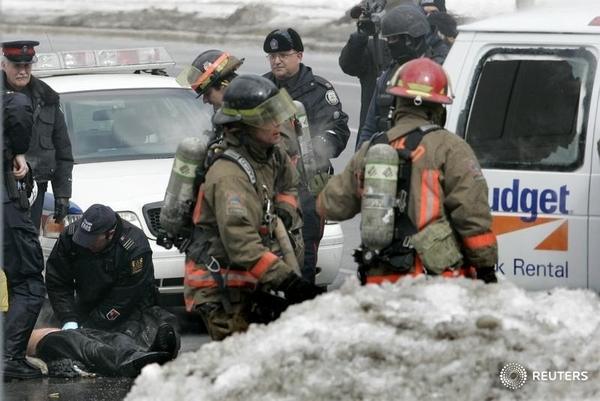Female public safety personnel at greater risk of mental disorders

The government of Canada has announced $30 million in new federal investments to work with the Canadian Institute for Public Safety Research and Treatment (CIPSRT) at the University of Regina to tackle post-traumatic stress injuries (PTSI) among public safety personnel.
“Public safety personnel put themselves in harm’s way to protect Canadians, putting them disproportionately at risk of post-traumatic stress injuries. We must do more to support their mental health and well-being,” said Minister of Public Safety and Emergency Preparedness Ralph Goodale.
In the course of their daily work keeping our communities safe, public safety personnel are repeatedly exposed to traumatic incidents, which can put them at great risk for operational stress injuries, including PTSI. An estimated 70,000 Canadian tri-service officers (police, firefighters and paramedics) have suffered from PTSI. A federally funded study of mental health among public safety personnel by CIPSRT found that substantial proportions of participants reported symptoms consistent with one or more mental disorders, at rates far higher than the general population.
A 2017 report titled Mental Disorder Symptoms among Public Safety Personnel in Canada indicated that women (51.7 per cent) had a rate of mental disorders that exceed men (41 per cent).
“The need for evidence-based research to address mental injuries suffered by first responders and other public safety personnel in the line of duty is clear and pressing — particularly at a time when gender equality is in the public consciousness more than ever before,” said Vianne Timmons, president and vice-chancellor of the University of Regina.
The government is investing $20 million over five years to support a new national research consortium between the Canadian Institutes of Health Research and the Canadian Institute for Public Safety Research and Treatment. This new consortium will work to address the incidence of post-traumatic stress injuries among public safety personnel.
It is also dedicating $10 million over five years for Public Safety Canada to work with the Canadian Institute for Public Safety Research and Treatment to develop an Internet-based cognitive behavioural therapy pilot as a means of providing greater access to care and treatment for public safety personnel across Canada. This will help address barriers to obtaining access to mental health supports for public safety personnel in rural and remote areas.





